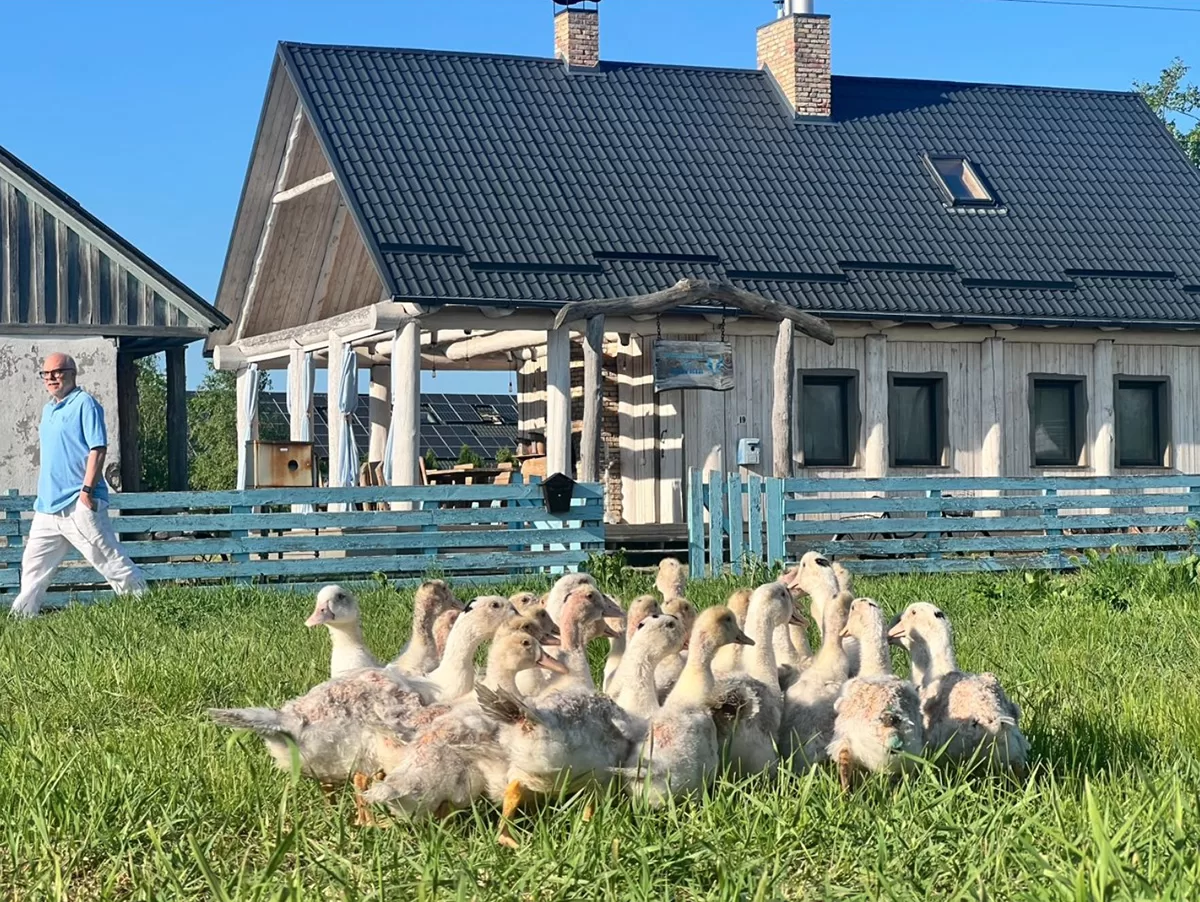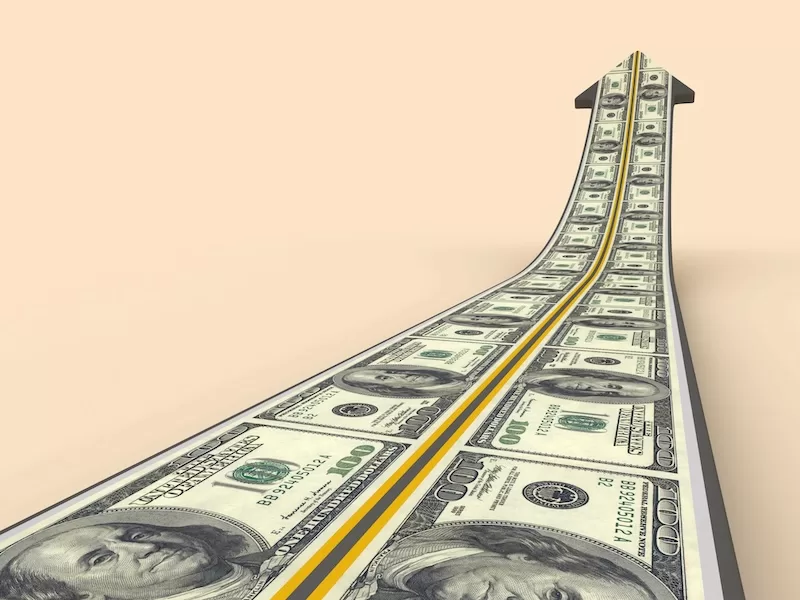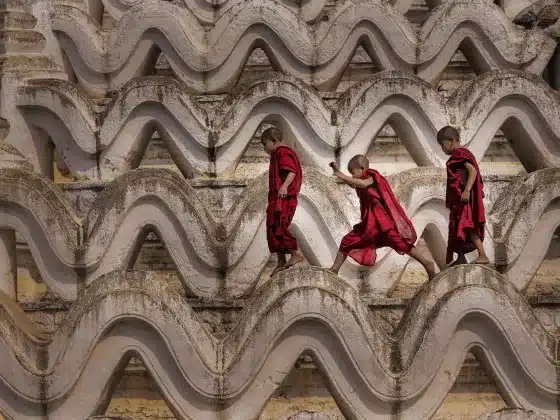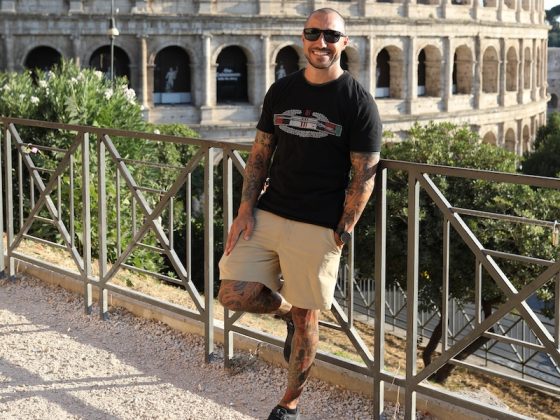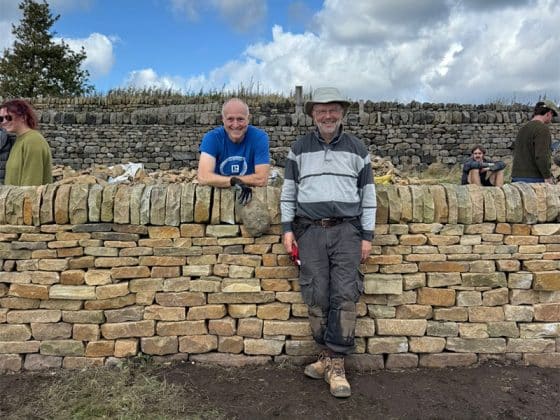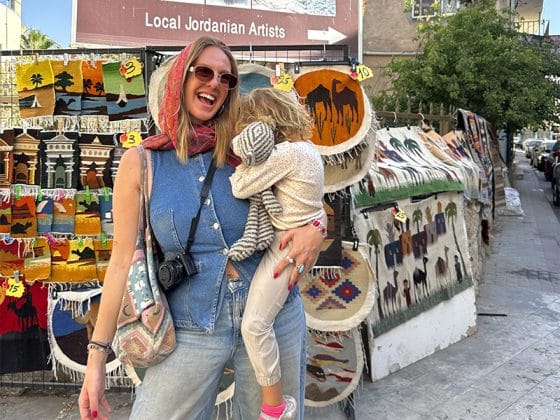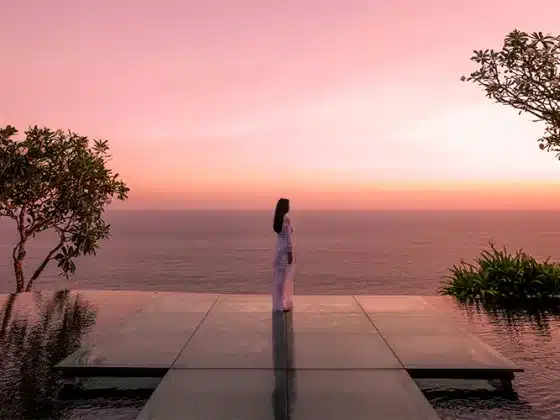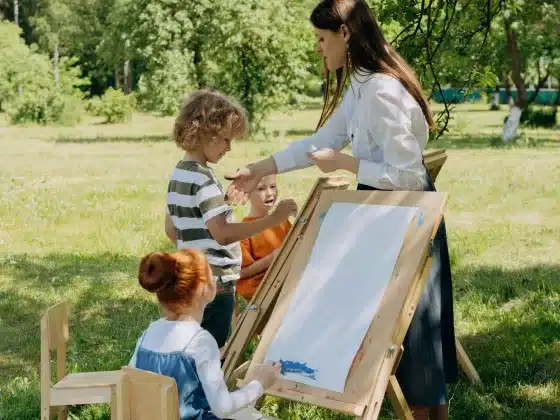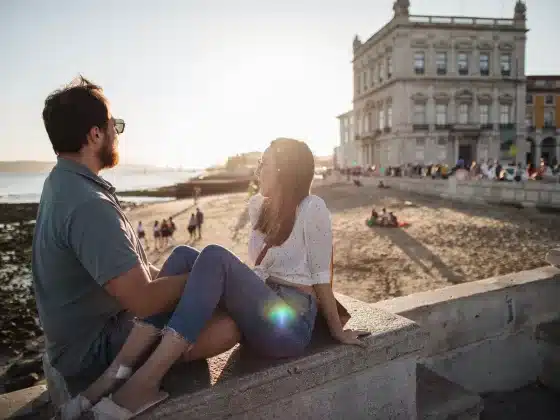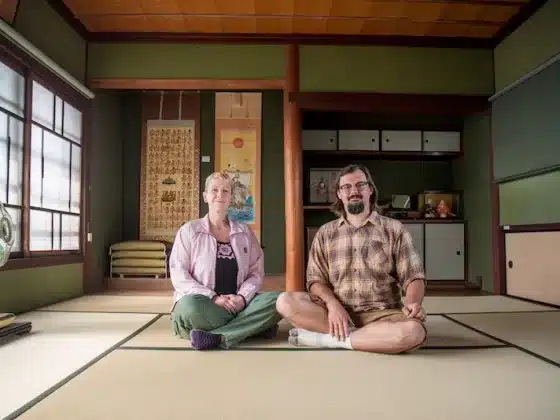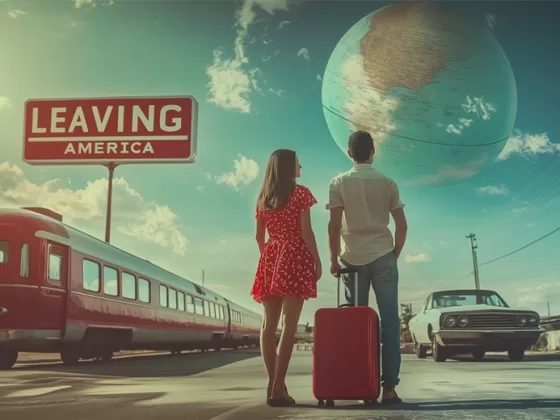After traveling around the world in his 20s, award-winning filmmaker Chad Gracia returned to New York City and lived there until he found himself drawn to eastern Europe two decades later. After making an award-winning documentary in Kyiv, he fully relocated in 2017 and has never looked back. He even built his own dacha, or country cabin, and returned to it despite the Russian invasion driving out millions of Ukrainians over the past two and a half years.
EA: Why did you first think of leaving the US and what drew you to Ukraine and Kyiv?
Chad Gracia: I’ve always had a connection with the former Soviet Union. I first visited Kyiv in 2006 and found everything I loved about Moscow, minus the downsides. Kyiv felt like a smaller, more manageable Moscow. I was also tired of New York after 20 years and wanted a place that was walkable, had less traffic, and was undergoing significant change. Ukraine was still emerging from its Soviet past, which gave the city an energy that reminded me of New York’s Lower East Side in the ’90s. Another reason was economic. My theater company in New York had closed due to rising costs. But the costs in Kyiv were a fraction of those in New York. This allowed me to recreate the culture of enthusiastic, creative collaboration on a shoestring budget.
What was most difficult about the move itself—getting out of the US, gaining residency in Ukraine, culture shock, or something else?
Ukrainians love stamps, so the biggest and best investment an expat can make is to buy on Amazon one of those official-looking round stamps. If you can stamp your papers it will impress everyone. Many many times, whether it was to renew my lease or even to buy some bulk books, they demanded a stamp. So the first rule, to solve 90 percent of bureaucratic problems, is to buy a stamp. Second rule, when all else fails just play dumb. When I tried to get my temporary residence permit renewed I was told probably 10 times that I had to leave the country or start over, even though that contradicted official government websites. My solution was to go to the meeting and when they told me it was impossible I just pretended I was a stupid American and refused to leave. Eventually, after about 15 minutes they wanted to get rid of me and they realized it wasn’t impossible: the solution was just to go and buy a $40 extension to my insurance at a nearby kiosk. I did that, and voila, I had my residence permit.
You made a documentary about the Chernobyl disaster that touches on the fall of the Soviet Union and Ukraine’s Maidan revolution. What inspired that story and why do you think it worked? Also did it bring you closer to Ukraine and Ukrainians?
In 2013, I began making my first documentary in Kyiv, and once again, the lower costs and abundance of talented professionals convinced me to base my film production company here. This led to The Russian Woodpecker, which started as a portrait of an artist who believed he had found the true cause of the Chernobyl disaster. It evolved into a broader commentary on paranoia in the post-Soviet space and a warning about fake news and political deception, themes that are all too relevant today. Unplanned events, like the Maidan revolution, deeply influenced the documentary, which won the Sundance Grand Jury Prize in 2016 and opened many doors for me. Kyiv has been my base ever since.
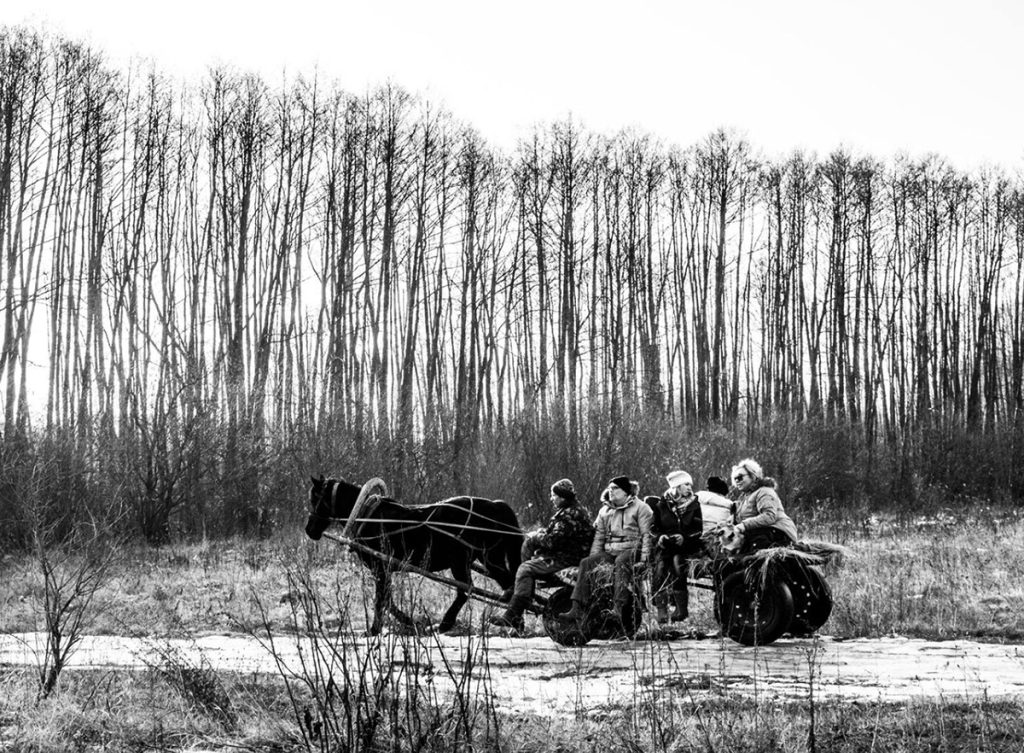
In 2017 you decided to commit long-term to Ukraine by building a house in the country. Why did you choose the village of Litochki, what convinced you to invest there?
I chose Litochki because a close friend who lives there and happens to be a contractor and architect. When the plot next to his became available, I seized the opportunity to build my own summer house. I’ve always wanted a dacha, and Litochki offered the perfect blend of peace, nature, and community, all a short drive from the city. The village is full of life, with people who live there year-round, care deeply for their homes, and share their harvests. It’s an ideal retreat from the city, and already several of my friends and acquaintances have also moved to the area.
Please tell us a bit about building a home in Ukraine. What was the initial estimate to build your dacha and much did it cost in reality?
Buying land in Ukraine is surprisingly cheap and straightforward. I purchased a sizable plot with a house already on it for just $12,000. Building, however, was more challenging and expensive than anticipated. We ended up spending around $100,000 on what was initially a $40,000 project. But despite these difficulties, the house has become a successful Airbnb, attracting guests from around the world. This side business has essentially paid off the entire project, and I look forward to continuing it after the war.
What has kept you in Ukraine? You’ve stayed a long time, especially given the conflict and risk of violence.
I’ve been here about seven years, and what I love about Ukraine is the emphasis on community and relationships over work. Friends and family come first, and it’s not uncommon to be invited to spontaneous gatherings. This culture of connection nourishes the soul, making life here incredibly fulfilling. Another thing that keeps me here is the sense of history being made. I want to be in Kyiv when people look back a thousand years from now, wondering what it was like when Russia lost this war.
Economically, Ukraine allows me to pursue dreams that would be impossible in Manhattan. I run a cinema society, own a summer cottage that doubles as a cultural retreat, and live in a beautiful city center home with a screening room—all things I couldn’t afford in New York. Additionally, the cost of documentary filmmaking here is so low that I can take risks on more experimental and controversial topics.
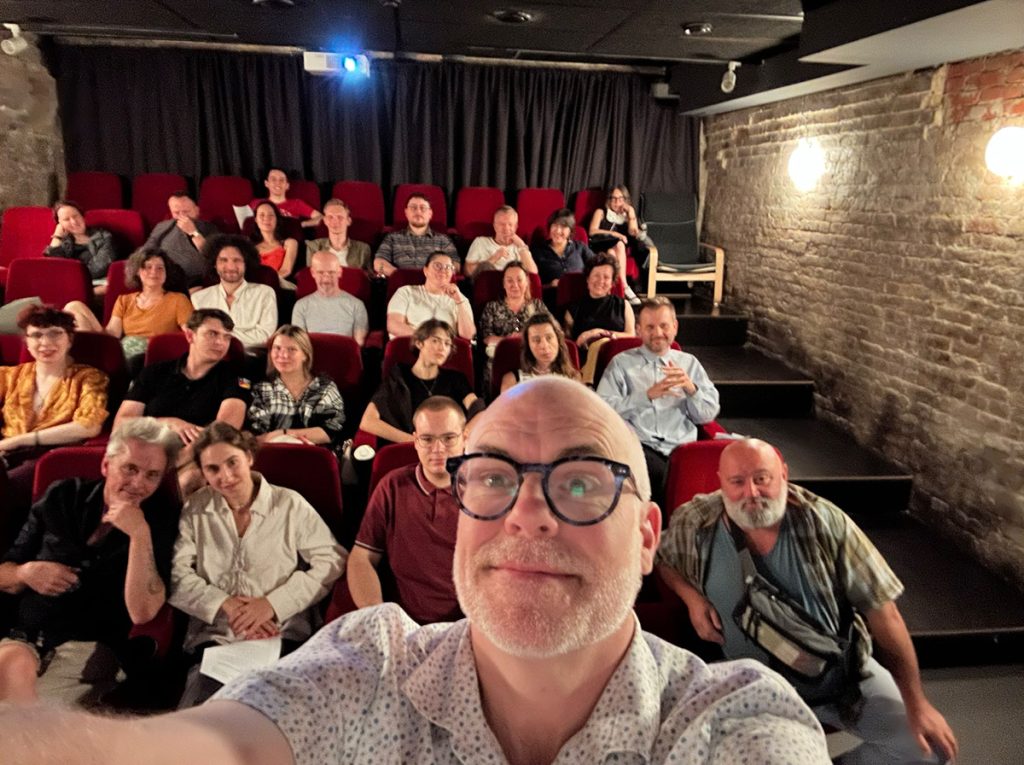
In late 2021, fears grew of a possible Russian invasion. What were your initial thoughts, did you consider selling your dacha and moving away?
Despite the war, I never considered selling my house in Litochki. The statistics show that the risk is low, especially compared to the perceived dangers. Plus, Kyiv feels safe with the Patriot missile defense system in place. The benefits of staying—being part of this historic moment, contributing to Ukraine’s future, and enjoying my home—far outweigh the risks. I was briefly in Lisbon, but I missed my life in Ukraine and decided to return.
You returned to Ukraine this May after two years away. How did you find it, had anything changed with the house or village? You recently rented an apartment in Kyiv, how’s life been there? More fear and anxiety than in the past?
Surprisingly, moving back after two years of war wasn’t as difficult as one might think. The most challenging aspects were logistical: waiting at the border, the absence of flights, and the lengthy journey in and out. Getting temporary residency was straightforward, especially if you’re contributing to Ukrainian society. The biggest hurdle has been learning Ukrainian. While Russian is still spoken at home, it’s no longer seen as appropriate on the streets, and I completely understand. Learning Ukrainian has been a challenge, but I’m committed to it.
The resilience of Kyiv is astonishing. Despite the war, the city is vibrant—parks are full, cafes and restaurants are bustling, and people are determined not only to win the war but also to live their lives fully. It’s as if the city has more energy and richness now than ever before.
Has living there in a time of war taught you anything about Ukrainians?
The war has made it easier to connect with others. At my cinema society, we recently held a screening in a bomb shelter-turned-theater, and the shared experience instantly bonded us. There’s a sense of camaraderie among those who have stayed, a shared belief that we will survive and rebuild, making the city even better than before. Ukrainians appreciate the expats who are here to help, and in return, we are deeply grateful for their resilience and courage in defending not just Ukraine, but the ideals of peace and freedom.
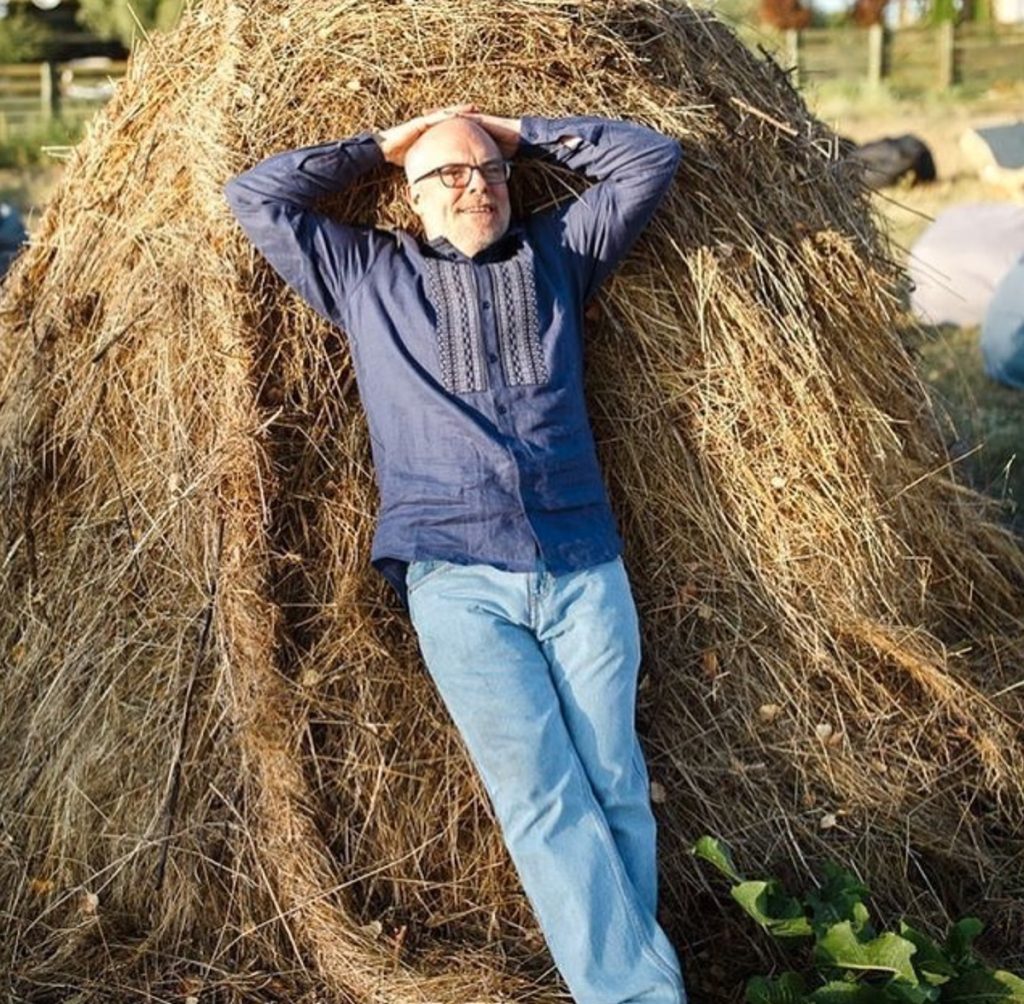
What advice would you give to people thinking of moving to a country that might be a bit unstable? Is there a secret to finding stability in semi-dangerous places?
First, assess the risks logically and statistically. The media might paint a terrifying picture, but the reality is often more manageable. However, if you have family or are sensitive to the stress of living under constant threat, it might not be the right move. For those who can tolerate the risks, the rewards—being part of a vibrant, resilient community—can be immense.
EA Editorial Staff
Contact Author
"*" indicates required fields
Stay Ahead on Every Adventure!
Stay updated with the World News on Escape Artist. Get all the travel news, international destinations, expat living, moving abroad, Lifestyle Tips, and digital nomad opportunities. Your next journey starts here—don’t miss a moment! Subscribe Now!
